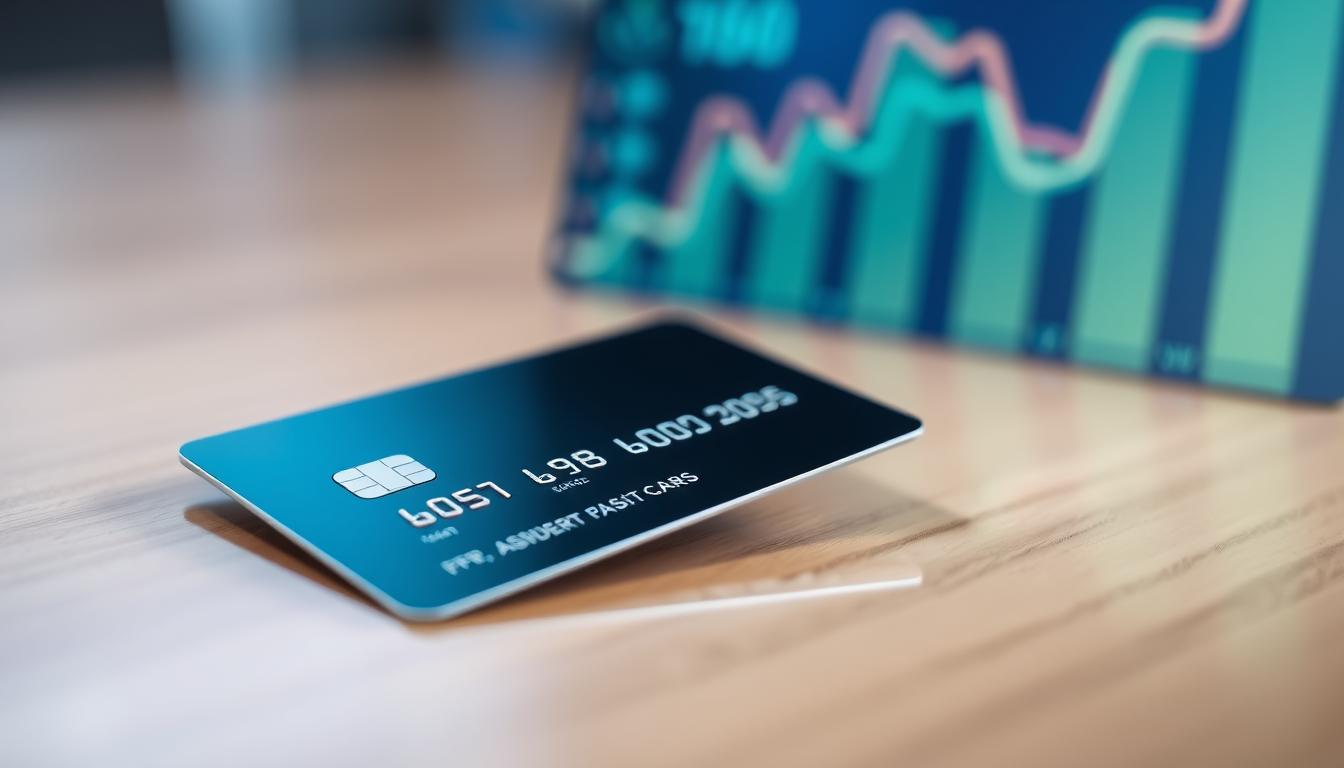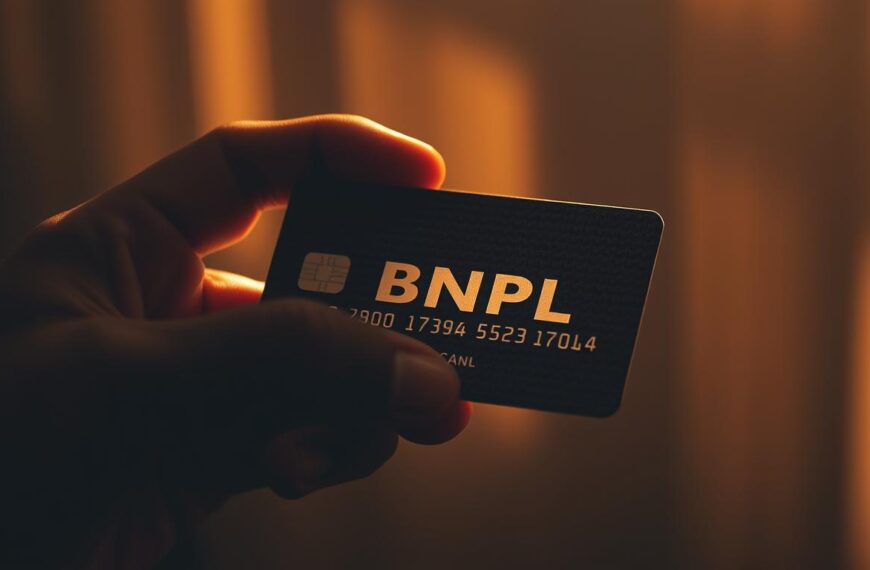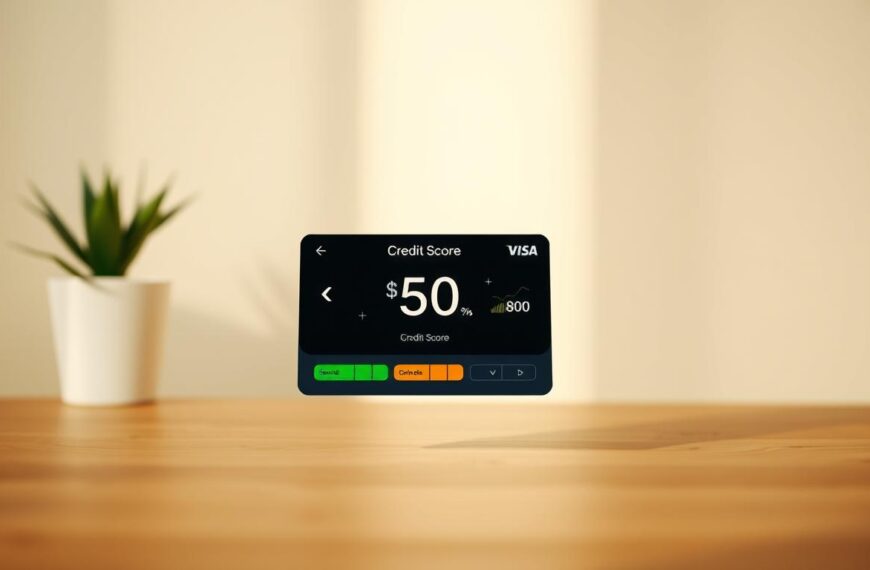Credit cards are great for credit building and boosting creditworthiness. They can greatly affect your financial future. By using them wisely, you show you can handle credit well. This can lead to higher scores, better borrowing terms, and lower interest rates later on.
Credit card companies send your activity to big credit bureaus like Experian, TransUnion, and Equifax. These bureaus make your credit reports, which are key to your scores. Using a credit card right and paying on time can help you build a strong credit history and increase your creditworthiness1.
To get good credit, it’s crucial to use your card regularly but wisely. Keep your credit use under 30% and pay on time12. Good credit habits, like not overusing credit and having a varied credit mix, can really help your score. This can lead to more chances for good loans and lower interest rates in the future.
Understanding the Basics of Credit Building with Cards
Building a strong credit profile is key for getting good loans and showing you’re financially savvy. Credit cards are a big part of this. Knowing what credit bureaus look for helps you do it right.
What Credit Bureaus Look For
Credit bureaus like Experian, Equifax, and TransUnion watch how you use your credit cards. They want to see you pay on time, use less than 30% of your credit limit, and have a mix of credit types3. Keeping your credit use under 30% is especially important for a good score4.
The Role of Credit Reports
Credit reports are the base of your credit score. They show your payment history, credit limits, and any missed payments or defaults3. It’s important to check your report often to see how you’re doing and make sure it’s right.
Key Credit Score Components
There are a few main things that affect your credit score. Payment history (35%), credit use (30%), how long you’ve had credit, the mix of your credit, and new credit applications all matter4. Paying on time and using less credit are big steps towards a better score.
Understanding these basics helps you make better choices. It lets you work on improving your creditworthiness over time34.
Getting Started with Your First Credit Card
For those new to building credit, there are a few options to consider. Secured credit cards, student credit cards, and becoming an authorised user on someone else’s card can all help. They are effective ways to establish or improve your credit profile5.
Secured credit cards require a refundable security deposit, which becomes your credit limit5. This type of card can be a useful stepping stone. It helps you work towards getting a traditional, unsecured credit card as you build up your credit history5.
Student credit cards are another option for those new to credit. These cards often have lower credit limits, usually between £200 and £1,0005. They may offer rewards programs or other perks for students5. While the credit limits are generally lower, using a student credit card responsibly can still help establish a positive credit history.
Becoming an authorised user on someone else’s credit card can also be effective6. This allows you to piggyback on the primary cardholder’s credit history. It’s provided they manage the account responsibly6.
It’s crucial to use your first credit card responsibly, no matter which option you choose6. Make payments on time and keep your credit utilisation low6. Doing so can help you establish a positive credit history and improve your credit score over time6.
“Responsible use of credit cards, paying in full and on time, can help build a positive credit history.”6
How Does a Credit Card Improve Credit Score
Using a credit card wisely can really help your credit score. It can improve your payment history, how much you use your credit, and how long you’ve had credit. All these factors are important for your creditworthiness.
Payment History Impact
Payment history is key, making up 35% of your FICO score7. Paying your credit card bills on time shows lenders you’re reliable with credit. Always paying on time is essential for a good score.
Credit Utilisation Effects
What you owe, like your credit card balances, is 30% of your FICO score7. Keeping your balances low, below 30% or better 10%, helps your credit utilisation ratio7. Getting a new credit card can also lower your overall utilisation, boosting your score.
Length of Credit History Benefits
The length of your credit history is 15% of your FICO score7. Keeping your credit cards open for longer shows you can handle credit well over time. This can help your score.
Knowing how credit cards affect your score helps you make better choices. Focus on making timely payments, keeping utilisation low, and having a long credit history. These are all important for a strong credit profile.

“Responsible use of credit cards can be a powerful tool for building and improving your credit score.”
Smart Ways to Manage Credit Card Usage
Using credit cards wisely is key to a good credit score. Smart habits can boost your score and keep your finances stable8.
Keep your credit card balances low. Try to use less than 30% of your credit limit9. This shows lenders you handle credit well.
- Always pay your credit card bills on time. Late payments can hurt your score9.
- Set up automatic payments to avoid missing due dates9.
- Don’t use all your credit, as it can lower your score9.
Check your credit reports and scores often8. This helps you spot and fix any problems early.
| Credit Card Feature | Benefit |
|---|---|
| Reward Points | Earn rewards for everyday purchases |
| Cashback | Get a percentage of your spending back |
| Low Annual Fees | Lower the cost of using a credit card |
Smart credit card habits show you’re responsible with credit. They help you manage your finances well and enjoy the perks of a good credit limit89.
“Responsible credit card usage is the key to building a strong credit profile and financial well-being.”
Building Credit Through Different Card Types
Understanding credit can be tough, but using various credit cards can boost your score. Secured, student, and store credit cards each play a role in building your credit10.
Secured Credit Cards
Secured credit cards are great for those with little or no credit. You need to put down a deposit, usually £200 to £1,000, which becomes your credit limit. By paying on time and keeping your credit use low, you can improve your score11.
Student Credit Cards
Student credit cards are made for college students, with easier credit checks. They help young people with no credit start building a good score. By paying on time and using the card wisely, students can lay a solid credit foundation12.
Store Credit Cards
Store credit cards are easier to get than regular credit cards. They’re issued by specific stores and can only be used there. Even with higher interest rates, using them wisely and paying off balances can help your credit score101112.
FAQ
How do credit cards help build and improve credit scores?
Credit cards are great for boosting your credit score. They show you can handle credit well. To get better, use your cards wisely, pay on time, and keep your balance low.
What do credit bureaus look for when assessing credit?
Credit bureaus like Experian, TransUnion, and Equifax check how you use credit cards. They use this info to make your credit report. Your score depends on how you pay, how much you use, how long you’ve had credit, and more.
How can someone new to credit establish it?
If you’re new to credit, there are a few ways to start. You could get a secured card, a student card, or be an authorised user. Secured cards need a deposit but can lead to better cards. Student cards have low limits but offer rewards. Being an authorised user on someone else’s card can also help if they manage it well.
How do credit cards improve credit scores?
Credit cards help your score by showing you pay on time. This is a big deal for your payment history. Keeping your balance low shows you’re good with credit. And, the longer you have credit, the better your score will be.
What are some smart ways to manage credit card usage?
Smart credit card use means paying on time and keeping balances low. Try to pay down balances before the statement date. Use cards for small, regular buys and clear them each month. Check your credit reports and scores often to see how you’re doing.
What are the different types of credit-building cards?
There are many cards to help build credit. Secured cards are for those with no or bad credit, needing a deposit. Student cards are for college students, with easier credit checks. Store cards are easy to get but have high interest. Using a mix of these cards wisely can improve your credit score.

















